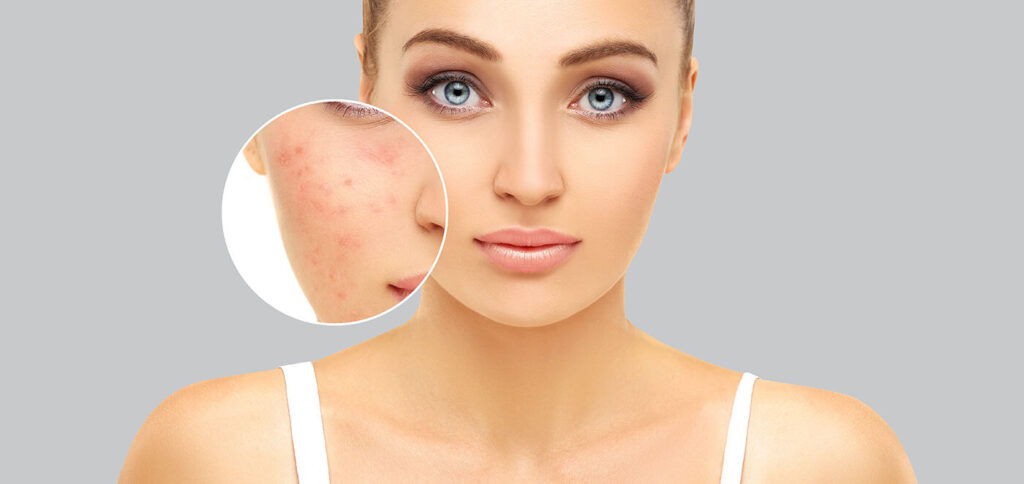Hyperpigmentation - Symptoms, Causes, Prevention & Homeopathic treatment

Overview
Hyperpigmentation is a common skin condition characterized by darkened areas on the skin. This occurs when excess melanin, the pigment responsible for skin color, is produced. While hyperpigmentation is generally harmless, it can affect an individual’s appearance and self-esteem. Conventional treatments often focus on reducing pigmentation, but homeopathy offers a holistic approach to managing this condition by addressing underlying causes and supporting overall skin health.
Symptoms
The primary symptom of hyperpigmentation is the presence of darker patches or spots on the skin. These may appear as:
- Age Spots: Small, darkened areas typically found on sun-exposed parts of the skin, such as the face, hands, and arms.
- Melasma: Larger, irregular patches of dark skin, often on the face, particularly affecting women during pregnancy or those on hormonal treatments.
- Post-Inflammatory Hyperpigmentation: Dark spots that develop after an injury or inflammation, such as acne or eczema.
- Freckles: Small, flat brown spots that are often genetic and appear on sun-exposed areas.
When to see a doctor
Consult a healthcare provider if:
- Rapid Changes: You notice a sudden or rapid increase in pigmentation.
- Unusual Symptoms: The pigmentation is accompanied by other symptoms such as itching, bleeding, or changes in texture.
- Concerns About Skin Cancer: Any new or changing spots that are asymmetrical, have irregular borders, or are unusually dark or large.
- Persistent Symptoms: Hyperpigmentation that does not improve with over-the-counter treatments or lifestyle changes.
Causes
Hyperpigmentation can result from various factors, including:
- Sun Exposure: Prolonged exposure to ultraviolet (UV) rays stimulates melanin production, leading to sunspots or age spots.
- Hormonal Changes: Conditions like melasma are often triggered by hormonal fluctuations during pregnancy, birth control use, or hormone replacement therapy.
- Inflammation: Skin inflammation or injury can result in post-inflammatory hyperpigmentation.
- Medications: Certain drugs, such as chemotherapy agents, can cause pigmentation changes.
- Genetics: A family history of pigmentation disorders can increase susceptibility.
Risk factors
Factors that may increase the risk of developing hyperpigmentation include:
- Skin Type: People with darker skin tones are more prone to hyperpigmentation.
- Sun Exposure: Excessive or unprotected sun exposure increases the likelihood of developing sunspots.
- Hormonal Changes: Pregnancy, birth control, or hormone treatments can trigger melasma.
- Use of Certain Medications: Some medications may cause pigmentation changes as a side effect.
- Skin Injuries: Previous injuries, burns, or inflammatory skin conditions can result in post-inflammatory hyperpigmentation.
Complications
While hyperpigmentation itself is not usually dangerous, it can lead to complications such as:
- Emotional Impact: Aesthetic concerns may affect self-esteem and mental well-being.
- Skin Sensitivity: Darkened areas may become more sensitive to further sun exposure or irritants.
- Difficulty in Diagnosis: Differentiating between benign hyperpigmentation and serious conditions like melanoma may be challenging.
Preventions
To prevent or minimize hyperpigmentation:
- Sun Protection: Use broad-spectrum sunscreen with SPF 30 or higher daily, even on cloudy days.
- Avoid Excessive Sun Exposure: Seek shade, wear protective clothing, and avoid peak sun hours.
- Skincare Routine: Incorporate products with ingredients like vitamin C, niacinamide, and hyaluronic acid, which can help even skin tone.
- Gentle Skin Care: Avoid harsh scrubs or treatments that may irritate the skin.
- Monitor Medications: Discuss potential side effects of medications with your healthcare provider.
Can Homeopathy Help?
Homeopathy offers a holistic approach to treating hyperpigmentation by considering the overall health and individual characteristics of the patient. A homeopathic practitioner will conduct a detailed assessment, including physical symptoms and emotional state, to prescribe the most suitable remedy.
Diagnosis
Diagnosis of hyperpigmentation typically involves:
- Clinical Examination: Visual inspection of the skin to assess pigmentation patterns and characteristics.
- Medical History: Discussion of past skin conditions, medications, and sun exposure history.
- Skin Biopsy: In some cases, a biopsy may be performed to rule out other conditions or confirm the diagnosis.
- Laboratory Tests: Blood tests or hormone panels may be ordered if hormonal imbalances are suspected.
Treatment
Treatment options for hyperpigmentation include:
- Topical Agents: Prescription creams containing hydroquinone, retinoids, or corticosteroids to lighten dark spots.
- Chemical Peels: Professional peels using acids to exfoliate the skin and reduce pigmentation.
- Laser Therapy: Laser treatments that target pigment in the skin to break down dark spots.
- Cryotherapy: Freezing the pigmented areas with liquid nitrogen to remove them.
- Homeopathic Remedies: As mentioned earlier, remedies tailored to individual needs can support skin health and alleviate pigmentation.
Lifestyle and home remedies
Incorporate these lifestyle changes and home remedies to support skin health:
- Healthy Diet: Consume a balanced diet rich in antioxidants, vitamins, and minerals to promote skin health.
- Hydration: Drink plenty of water to keep the skin hydrated and support its natural repair processes.
- Sun Protection: Use sunscreen daily and wear protective clothing when outdoors.
- Gentle Exfoliation: Use mild exfoliants to remove dead skin cells and promote cell turnover.
- Natural Remedies: Apply natural ingredients like aloe vera, green tea extracts, or licorice root to help brighten the skin.
Preparing for your appointment
To make the most of your appointment with a healthcare provider or homeopathic practitioner:
- Document Symptoms: Keep a record of when the pigmentation appeared, its progression, and any associated symptoms.
- Medical History: Provide details about past skin conditions, treatments, and any medications you are currently taking.
- Sun Exposure: Note your sun exposure habits and any recent changes in skincare routines.
- Questions: Prepare questions about potential causes, treatment options, and preventive measures.
